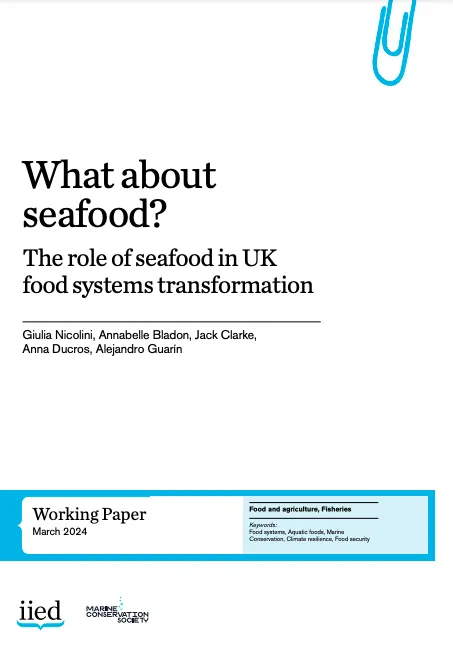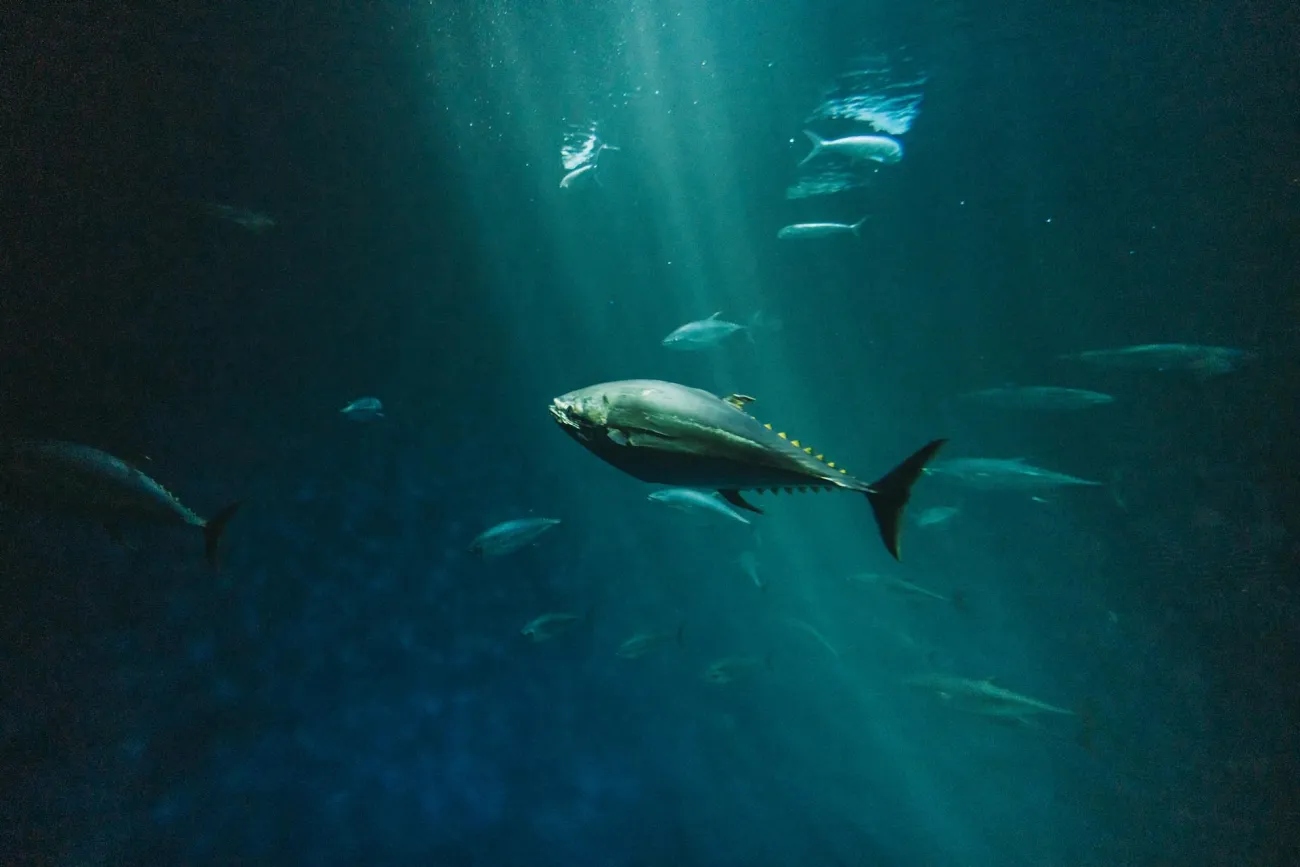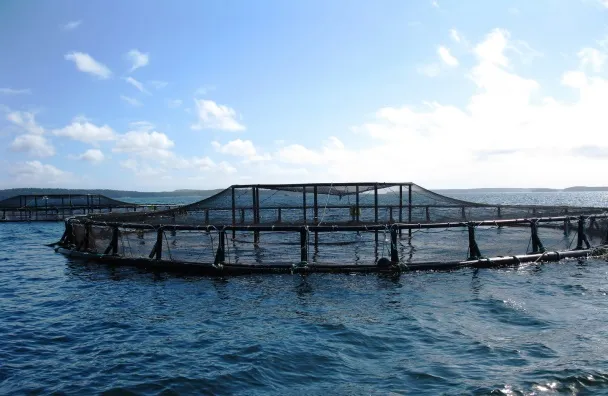This report by the International Institute for Environment and Development (IIED) and the Marine Conservation Society argues that seafood should play a more prominent role in debates about food systems transformation in the UK. It discusses the connections between seafood and the broader food system and considers seafood’s potential role in food systems transformation in the UK, as well as analysing future visions for seafood in the UK.

This report argues that seafood is being excluded from debates on food systems transformation in the UK, despite its connections with the broader food system. This ‘terrestrial bias’, it says, misses the contribution that seafood makes to food and nutrition security, livelihoods and culture and presents potential synergies of increased integration of seafood into food systems, such as greenhouse gas emission reductions, improved nutrition, providing low-carbon fertiliser and reducing the trade deficit.
It cites TABLE’s Meat: the Four Futures project and podcast as an example of how seafood is missing from debates around the future of food and protein.
The report also highlights the challenges facing seafood and marine environments; overfishing, feed-food competition, and how changes in seafood production and consumption in the UK could have unintended consequences overseas. It calls for a holistic approach to seafood and that it is included in wider discussions and planning on the future of food systems.
The report uses the term seafood to refer to all animals, plants and algae harvested or farmed in an aquatic environment, not just the ocean.
The report highlights that there are calls to promote seafood, particularly aquaculture, bivalves (mussels and oysters), wild salmon and algae, as a low-carbon alternative to terrestrial meat. However, it says this analysis often ignores biodiversity and there is limited evidence that people will substitute red meat for seafood. Ambitions and narratives that encourage a diversification consumption away from meat and dairy consumption towards seafood could have detrimental impacts on the environment, fish stocks and coastal communities — particularly overseas — if not properly considered.
It explores the different visions of the role of seafood in the food system; including the UN’s FAO Blue Transformation Roadmap that promotes the intensification of aquaculture and the EU’s Farm to Fork strategy that views algae as an alternative form of protein. The report argues that the UK’s policy on seafood is incoherent and requires more integration into wider food policy. It highlights a notable mismatch between food guidelines that recommend two portions of seafood a week, policy focusing predominantly on exporting opportunities and the UK population's current preference for imported varieties.
Reference
Nicolini, G. et al. 2024. The Role of Seafood in UK Food Systems Transformation. IIED & Marine Conservation Society.
Read the full report here and see more from TABLE’s Meat: the Four Futures project and podcast here.




Comments (0)